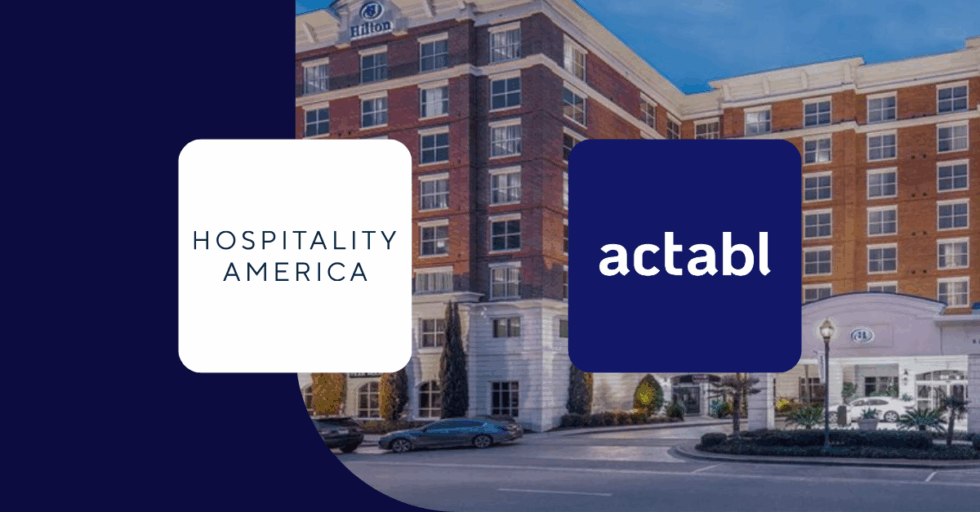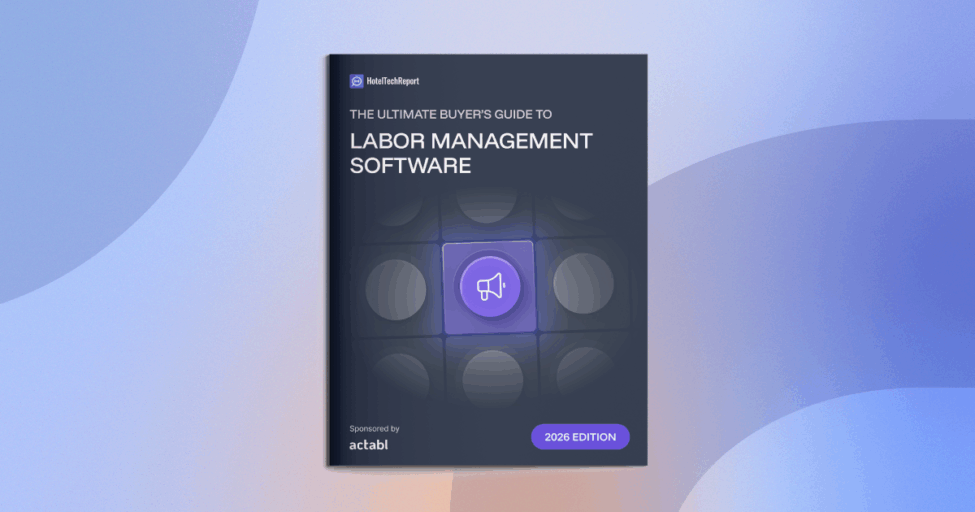
5 CapEx Procurement Strategies to Boost Hotel Efficiency
In the hotel industry, effective capital expenditure (CapEx) planning is a cornerstone of long-term success. Hotels must balance maintaining high-quality guest experiences with carefully managed budgets. To thrive in today’s economy, mastering hotel CapEx planning is more critical than ever.
Let’s discuss some strategies for effective CapEx planning, helping hotel operators make informed decisions and maximize the impact of their investments.
Why is Strategic CapEx Planning Essential in Today’s Economy?
The economic landscape poses challenges for hotel operators, including inflation, labor shortages, and supply chain disruptions. Strategic hotel CapEx planning allows you to navigate these obstacles by prioritizing high-impact projects and avoiding unnecessary expenditures.
Key benefits of a robust hotel CapEx plan include:
- Cost savings: Preventative maintenance reduces expensive emergency repairs.
- Operational efficiency: Upgraded systems streamline operations and reduce energy costs.
- Competitive advantage: Modernized facilities attract more guests.
5 Hotel CapEx Procurement Strategies to Reduce Hotel Costs
1. Employ a Preventative Maintenance System
It’s crucial for guest comfort and your CapEx budget to keep equipment running at an optimal performance level. Many hoteliers fail to plan and instead rely on reactive maintenance, only looking to repair or replace equipment when it malfunctions or breaks down completely. This leads to unpredictable budgeting, downtime and a decreased lifespan for high-cost assets.
A study by the U.S. Department of Energy Operations and Maintenance reports that employing a preventative maintenance system results in CapEx savings of up to 18 percent over reactive maintenance. And over a 25-year period, businesses see an ROI of 545 percent, primarily from increasing the useful life of equipment.
To achieve optimal performance levels and take full advantage of these savings, hotels need a digital CapEx solution. The CapEx module from Transcendent leverages real-time data, integrating the capital planning process with our preventative maintenance system. You can create customized preventative maintenance schedules to continuously monitor the current condition, performance and expected useful life of equipment at each property, helping you reduce and better control repair/replacement costs.
2. Plan Replacements of Outdated Equipment
Hotels house a number of depreciable components that can become obsolete or require updating to meet government or brand requirements. Traditional manual methods make it difficult to keep track of ideal replacement timing for every asset. As a result, your equipment ages, maintenance work orders increase, and before you know it your engineering team is struggling to put out fires with quick fixes and patch jobs, or worse, you experience downtimes that impact your profitability.
Transcendent’s CapEx solution offers the unique ability to track every asset from cradle to grave, making it easy to automatically identify outdated equipment for replacement well in advance. You can plan, budget, forecast and approve capital expenditures before you need them, and you won’t waste resources performing maintenance on assets that are obsolete or beyond economical repair.
Another bonus, you’re able to schedule replacements for times when it will have the least impact on your business. The CapEx module also delivers instant digital access to contracts, warranties and certificates of insurance, so you can schedule equipment inspections just before coverage ends.
3. Determine When to Invest in Energy-Efficient Assets
HVAC systems alone can account for up to 40 percent of your hotel’s total energy use. When equipment isn’t running at peak energy efficiency, it not only affects guest comfort but also leads to higher monthly utility bills.
In recent years, significant advancements in energy-efficient solutions, such as LED lighting and innovative liquid pool covers that retain heat and humidity, have become available. Programs focusing on energy and water efficiency can help save between 5 and 20 percent on your energy costs.
To evaluate whether capital should be allocated to new energy-efficient solutions, it’s crucial first to assess your current usage. Begin by benchmarking water and energy consumption to determine if your equipment is performing at its optimal level or operating below its rated efficiency. Comparing the costs of repairing existing assets versus replacing them with newer, more efficient models can provide valuable insights into potential long-term savings and help guide smarter capital investment decisions.
4. Outsource Expertise
Partnering with external experts can significantly enhance your CapEx planning and execution. Professionals bring specialized knowledge and industry experience, ensuring that every dollar of your capital expenditure is strategically allocated for maximum impact.
Benefits of outsourcing expertise include:
- Specialized Knowledge: External consultants are often well-versed in the latest industry trends, technologies, and best practices. They can provide insights into innovative solutions and approaches that may not be immediately apparent to your internal team.
- Objective Assessment: Third-party experts offer an unbiased perspective on your CapEx projects. They can help identify areas where costs can be reduced without compromising quality and recommend investments that align with long-term strategic goals.
- Efficient Project Management: Managing large-scale capital projects can be complex and time-consuming. Consultants and specialized firms bring project management skills that streamline the process, ensuring projects are completed on time and within budget.
- Access to Advanced Tools and Resources: Many consulting firms use sophisticated tools and methodologies to analyze data, forecast costs, and evaluate ROI. This can lead to more accurate budgeting and better decision-making.
- Regulatory Compliance: Experts are often familiar with local and international regulations that may affect your CapEx projects. They ensure that your investments comply with legal standards, avoiding potential fines and delays.
- Long-Term Savings: By leveraging their expertise, external consultants can help avoid common pitfalls and unnecessary expenditures, ultimately leading to significant cost savings over time.
Learn more in our blog: Helpful Hints for Outsourcing Maintenance at a Hotel.
5. Purchase in Bulk
Bulk purchasing is a powerful strategy for hotels, especially those part of larger chains or management groups. By pooling resources and purchasing power across multiple properties, hotels can secure significant cost savings on equipment, supplies, and even services. Here’s how bulk purchasing can benefit your hotel’s CapEx planning:
Consistency Across Properties
Bulk purchasing ensures uniformity in the quality and appearance of items across all properties in a portfolio. This consistency enhances brand identity and guest experience, as guests receive the same level of comfort and service regardless of which property they visit.
Simplified Procurement Process
Managing procurement across multiple properties can be complex and time-consuming. Bulk purchasing simplifies this process, as hotels can centralize procurement, streamline supply chains, and reduce the administrative burden on individual property managers.
Reduced Waste
By coordinating purchases, hotels can avoid overstocking or understocking items, which often leads to waste. Bulk purchasing allows for better inventory management, ensuring that only what is needed is ordered and used efficiently.
Examples of Bulk Purchase Items
Common items that hotels can purchase in bulk include:
- Linens and Towels: High turnover items that need regular replenishment.
- Cleaning Supplies: Essential for maintaining hygiene standards across properties.
- Furniture and Fixtures: Bulk orders for refurbishments or new property openings.
- Technology Solutions: Equipment like televisions, telephones, and smart thermostats.
Leveraging Group Purchasing Organizations (GPOs)
Hotels can join Group Purchasing Organizations (GPOs) to further enhance their bulk purchasing power. GPOs negotiate on behalf of many businesses, providing access to pre-negotiated contracts and lower prices. This approach not only benefits the bottom line but also contributes to a more cohesive and consistent guest experience across properties.
Maximize Hotel Efficiencies with Smart CapEx Procurement Strategies
By adopting a preventative maintenance system, planning equipment replacements, investing in energy-efficient assets, outsourcing expertise, and purchasing in bulk, hotel operators can ensure their CapEx budgets are optimized for maximum impact. Implementing these strategies not only improves the bottom line but also positions hotels for long-term success in a competitive industry.
Ready to partner these strategies with the perfect software?
Discover how Transcendent, Actabl’s hotel asset management software, can help you unlock the full potential of your assets and streamline your hotel’s operations.





